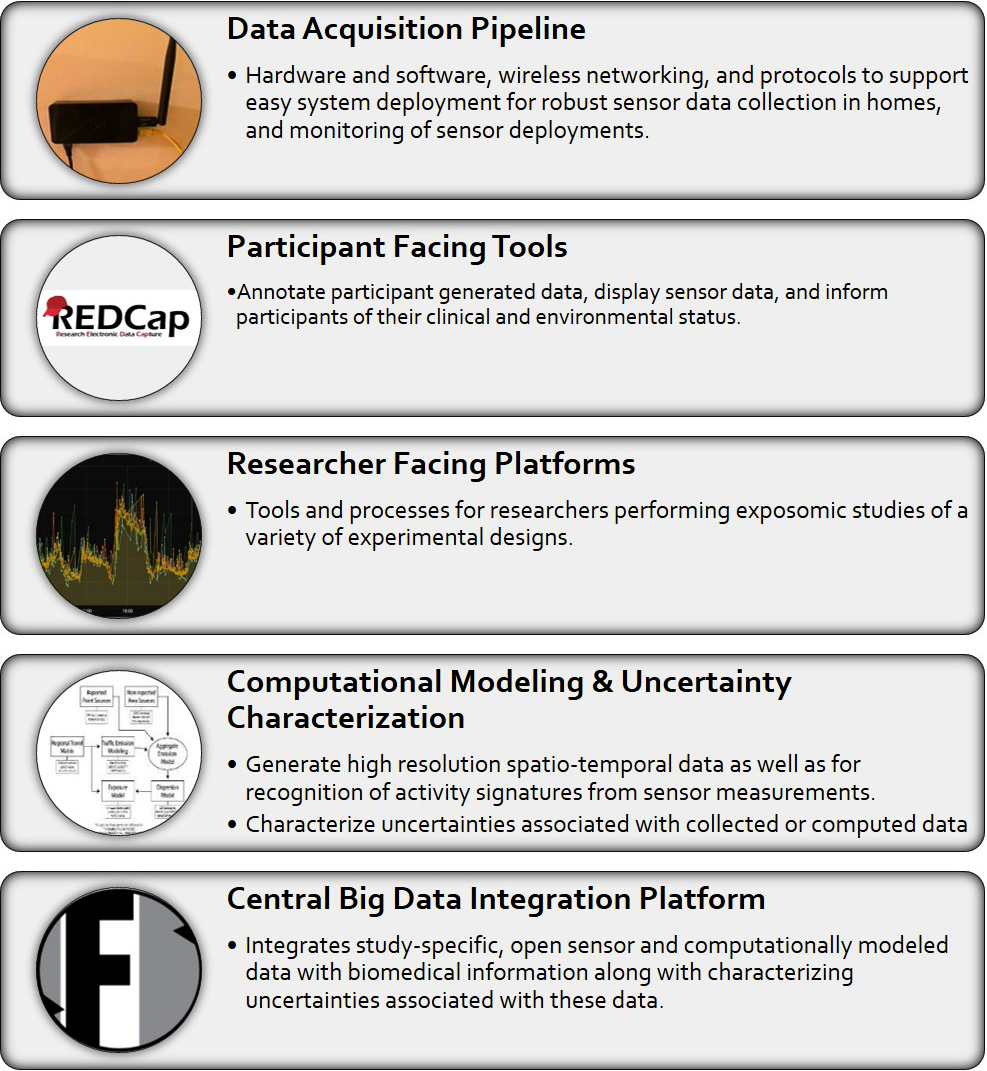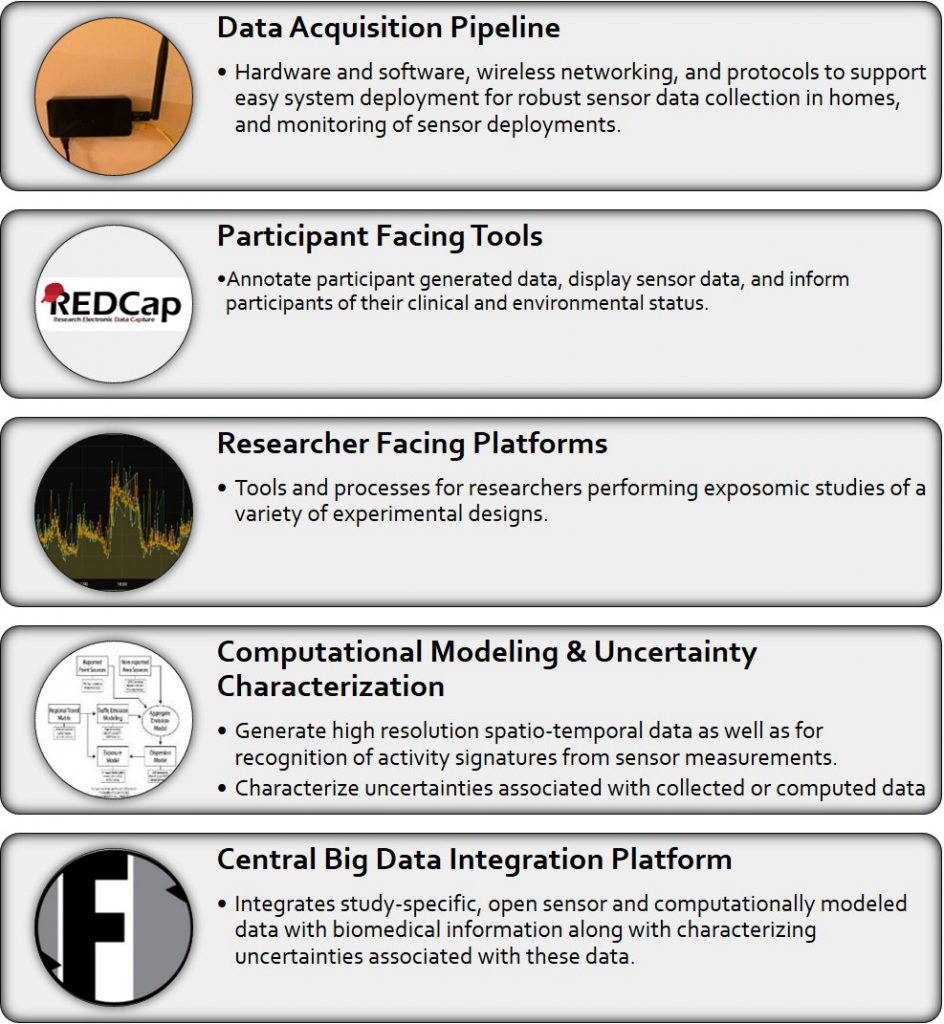
The NIH Pediatric Research using Integrated Sensor Monitoring Systems (PRISMS) program (http://www.nibib.nih.gov/research-funding/prisms) was launched in 2015 to develop sensor-based, integrated health monitoring systems for measuring environmental, physiological, and behavioral factors in epidemiological studies of pediatric asthma and other chronic diseases. The University of Utah was funded by NIH/NIBIB to develop an informatics ecosystem under this initiative (1U54EB021973, $5.5 million).
The PRISMS study included developing a home sensor networking system (simplifying data capture from multiple devices in a participant home), participant data visualization and annotation platforms, research study data management interfaces, computational modeling frameworks, and the core data integration platform. A pilot project in a small number of homes collected a unique longitudinal data set with more than 10 million home air quality sensor readings; that data set is being used to explore and develop novel data analytic methods for environmental research.
The University of Utah exposure health informatics ecosystem (EHIE), expanded under the PRISMS funding, is a Federated Integration Platform; an infrastructure that is helping researchers to bring together diverse data in flexible ways as needed for environmental health studies. This ecosystem facilitates sensor deployment and performance of sensor-based studies, and the integration, processing, visualization, and secure transmission of study data. The goal is to provide an effective, flexible and open access approach to collecting, managing and analyzing high-resolution data from sensors, generating and utilizing clinically relevant exposomes (exposure measurements); and integrating these exposomes with clinical, self-report, behavioral, and other research data. The PRISMS informatics ecosystem provides key infrastructure that can accommodate diverse types of future studies that include exposure monitoring.

